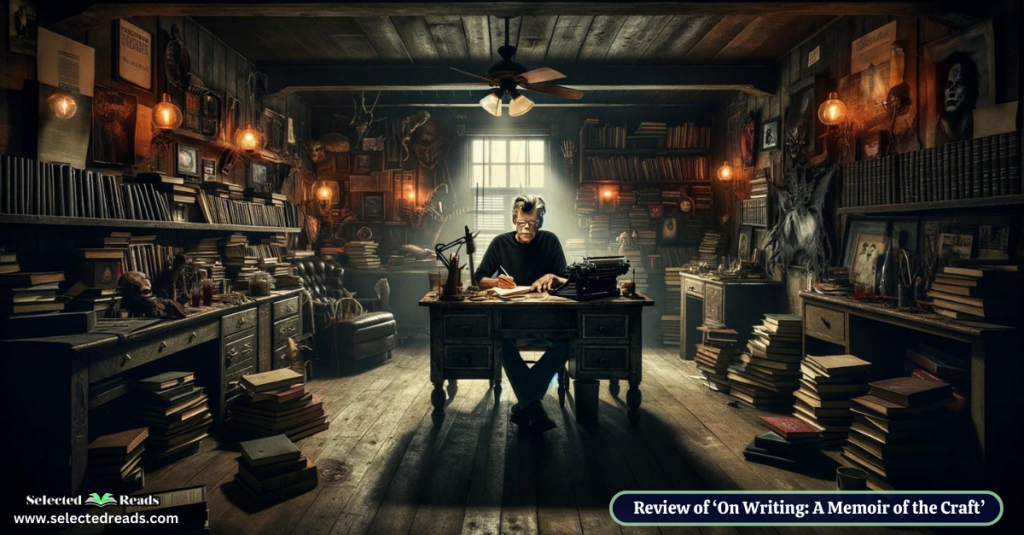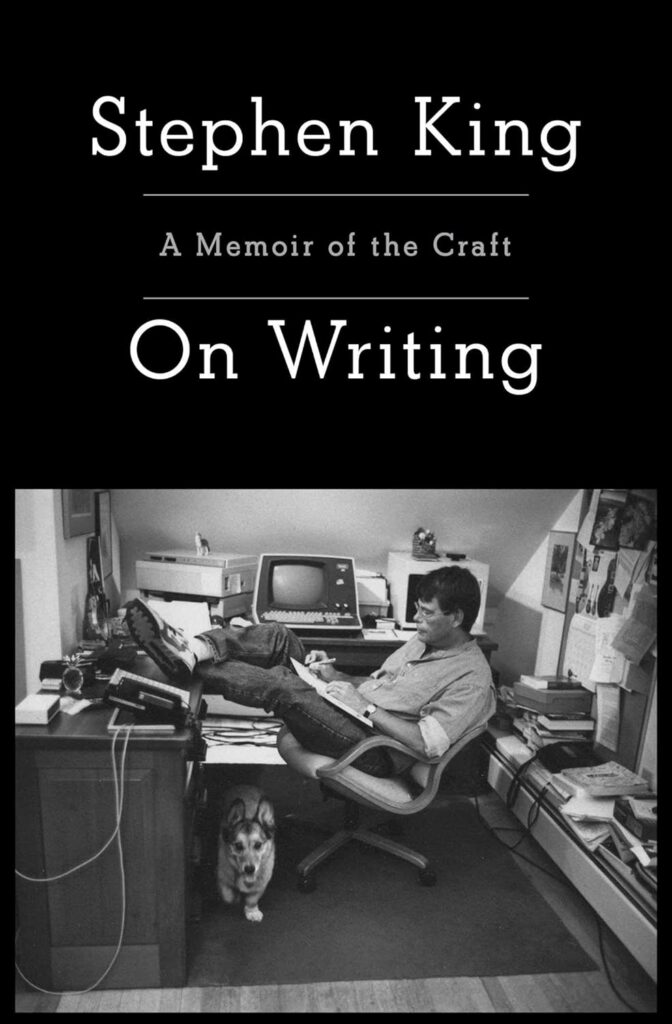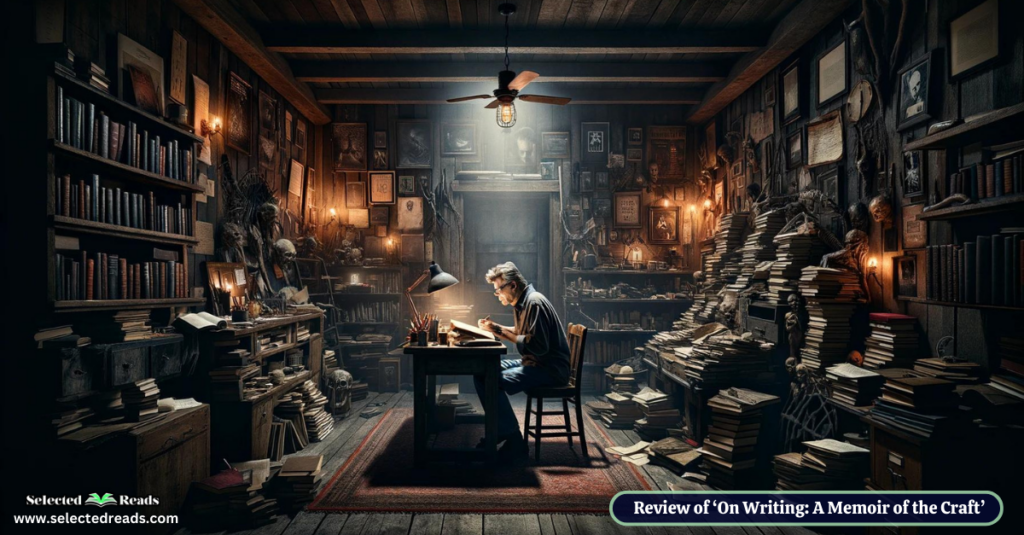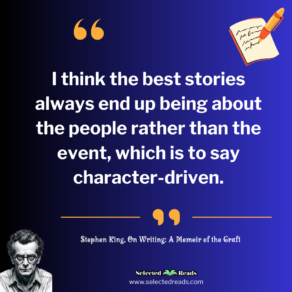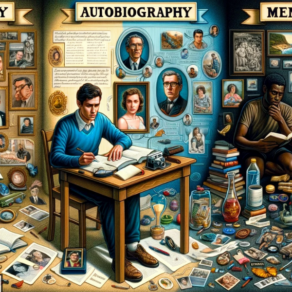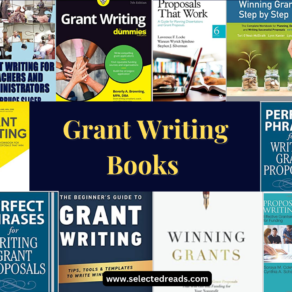“Stephen King’s ‘On Writing: A Memoir of the Craft’ is one of those writing guides that take you on a journey into the heart of storytelling. I find myself returning to it over and over, each time discovering new tips and guidelines that help me grow as a writer. King is renowned for his gripping tales that keep readers on the edge of their seats, and in this book, he opens up about his writing style and the mechanics behind his craft.
This is a rare opportunity coming from a master storyteller. The book itself is written in a way that’s characteristic of King’s work: it’s full of suspense and personal anecdotes that make it engaging from start to finish. It’s not just a manual; it’s a glimpse into the life of a writer who has mastered the art of telling stories that captivate and intrigue.
On Writing Stephen King Summary
“On Writing: A Memoir of the Craft,” is a book that weaves together the fabric of Stephen King’s experiences with the art of writing across several distinct sections.
In the segment titled “C.V. (Curriculum Vitae),” King takes us back to his earliest encounters with the written word, crafting a memoir filled with vivid tales from his youth. From crafting stories for his brother’s homemade newspaper to facing the sting of publisher rejections, King shares the highs and lows that sculpted his path as a writer. These early tales, set against a backdrop of poverty, addiction, and an unwavering commitment to writing, sketch the early blueprint of King’s eventual success.
Photo: Amazon
Transitioning to “What Writing Is and Toolbox,” King shifts the narrative to a more instructional tone, delving into the essence of writing. He likens writing to telepathy, an intimate exchange between writer and reader, emphasizing the critical importance of a well-stocked writer’s toolbox. With a focus on grammar, vocabulary, and style, King argues for the mastery of these tools as the foundation of compelling storytelling, urging writers to refine their skills and grasp the mechanics of language.
The “On Writing” section emerges as a master class in the craft. Drawing from a well of decades-long experience, King dispenses invaluable advice to budding writers on the importance of habitual reading, regular writing, and the discipline of revision. Advocating for a direct and honest approach, his practical advice is interlaced with personal anecdotes, grounding his guidance in the real-world process of writing.
In “On Living: A Postscript,” King recounts the life-altering event of his near-fatal accident in 1999, offering a poignant climax to his narrative. Struck by a van while walking, King narrates the arduous journey of recovery and how writing played a pivotal role in his healing. This chapter highlights the deep, personal bond King shares with his craft, viewing writing not just as a profession but as a vital lifeline.
Through the entirety of “On Writing,” Stephen King merges personal anecdotes with practical advice, crafting a narrative that enlightens and resonates on a deeply human level. His reflections transcend mere writing mechanics, touching on the perseverance, honesty, and passion necessary for a fulfilling creative life.
Stephen King Writing Tips
The following are tips I extracted from Stephen King’s quotes in On Writing. These tips serve as a practical guide to help you refine you writing skills and embrace the craft with confidence and creativity. For the full list, check out Best Stephen King’s On Writing Quotes
- Embrace the power of reading; it’s like magic that you can carry anywhere, enhancing imagination and creativity.
- Use adverbs sparingly; they’re like weeds in your garden of prose. Too many can clutter your writing, making it less effective.
- Let your descriptions start in your imagination but land solidly in the reader’s. Your goal is to spark their imagination, not to dictate every detail.
- Don’t wait for inspiration; professional writers write regularly, treating it like any other job.
- Writing can be a path to understanding life better, offering therapeutic benefits and personal growth.
- Focus on the impact your writing has on readers and yourself rather than on external rewards like fame or wealth.
- Draft privately, edit with an audience in mind. Your first draft is for your eyes only; revision is where you consider your readers’ perspectives.
- Facing the blank page is the hardest part. Once you start, it only gets easier.
- Regular reading sharpens your writing skills and helps avoid mistakes.
- Prioritize writing over conforming to societal expectations, especially when it comes to learning and improving your craft.
- Keep your vocabulary accessible; the best word is often the first one that comes to mind.
- Writing is an act of seduction; engaging dialogue is key to captivating your audience.
- Ignore detractors; criticism is a common experience for creators, so write what you’re passionate about.
- Reading extensively is non-negotiable for writers. It’s essential for honing your craft.
- Structure your life to support writing; don’t let writing consume your existence. Balance is crucial.
- Avoid passive voice; it can make your writing feel dull and disengaged. Active voice brings your sentences to life.
- Good story ideas can appear spontaneously; your job is to recognize and capture them.
- Integrate reading into your daily life. The more you read, the better you write.
- Recognize that writing involves revealing truths about human behavior, even when it’s uncomfortable.
- Approach writing with dedication but be aware of its challenges and rewards.
- In storytelling, characters matter more than plot events; focus on developing compelling characters.
- Eliminate distractions in your writing environment to maintain focus and productivity.
Final thoughts
I hope you’ve found this exploration of Stephen King’s “On Writing: A Memoir of the Craft” both enlightening and inspiring. King’s journey from a young writer grappling with rejection to becoming one of the most celebrated authors of our time is a compelling narrative that offers invaluable insights for writers at any stage of their journey.



